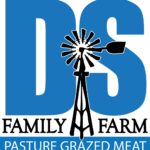Worried about what you are "really" eating? Have peace of mind with pasture grazed meats.
Junk Food
We have all heard the term “junk food” before. It is used to describe an ultra-HIGH-processed “food like” item such as chips. The poster child for junk food would probably be Doritos and or Pringles. I used to be able to sit down and eat a half bag or can of these “junk foods”. There is nothing natural about these items, yet they are found in every grocery store.
While doing some recent reading on health and food, one writer pointed out there is no such thing as “junk food”. It is either junk or food. How true! If I do eat a Dorito, not only am I eating “junk”, I am also probably eating some kind of toxin.
Why was it difficult for me to stop eating this junk?
As explained by Mark Schatzker in his book The Dorito Effect, these food like items are usually high in calories and low in nutrition. As your body consumes these items, a signal is sent to your brain that says “keep eating!” Keep eating because I am receiving a signal this item is good for me, but it is not satisfying me. The food industry uses additives/flavors that “trick” our biology into thinking we are eating something good, yet as we continue to eat the item with little to no nutrition, we simply are not satisfied (satiety). This trick is great for the processed “food” industry, but not so good for our biology.
Make America Healthy Again (MAHA)
The recent political slogan, MAHA, has brought a number of agriculture and health topics into the national spotlight. We have been posting about some of these same topics over the past decade. I don’t have a lot of enthusiasm that the recent national discussion will result in major changes, but if as a result, a few more people “wake up” to do their own research, that would be great.
For example, just the other day on a morning national news talk show, there was a discussion about health problems linked to artificial food coloring. Take another look at the food label above. If my count is correct, there are 6 different food dyes used in the manufacturing of Doritos. Will our oversight government bodies actually do something to further regulate artificial food coloring? I am doubtful. BUT if enough people stop purchasing items that include significant amounts of food dyes, hopefully companies will respond by removing the dyes. Over 6 years ago we posted about a farm visitor working for a larger food company that had a priority to remove food colors and dies. Hopefully that farm visitor wasn’t working for the manufacture of Doritos or Froot Loops, read on.
Something more sinister going on?
Over the past couple years on social media, I have noticed similar graphics such as the one below created by The Food Babe.

These graphics point out that questionable items are being added to processed foods in America that are not allowed in other countries. Wouldn’t it just be easier for Kellogg’s to make one formulation for Fruit Loops to meet the most “restrictive” country requirements? Why would the ingredients be reformulated to add questionable items, such as artificial food colors and BHT, to be fed to our entire countries population?
Why am I hopeful?
As explained in previous posts, at one time I was forced to reexamine my eating habits. I took the advice that often times we can achieve more progress toward a goal by eliminating or stop doing things (via negativity). Refer to Nassim Nicholas Taleb’s book Antifragile. The number one thing related to my diet that I eliminated was the use of seed oils. Seed oils are a more exact name for what is advertised in grocery stores as “vegetable oils”. Specifically corn oil, soybean oil, canola oil, margarine and other similar “healthy oils”. The only oils I use today in cooking are coconut oil, olive oil and animal fats (lard, butter and tallow).
Another item I eliminated in my diet was High Fructose Corn Syrup (HFCS). Not only did I stop purchasing items that included HFCS, but so did a lot of other people. How do I know this?
- I saw major food companies try to advertise that HFCS was OK by showing mothers serving it to kids.
- These advertisements were not convincing.
- Today at the grocery store, I can find a number of items that make it a point to indicated “NO HFCS”.
Will the recent national discussion about food dies, seed oils and other suspect ingredients in processed foods put companies on notice? Again, I am hopeful but in the mean time, I will continue to do my own research.
Curious how to do some research on foods?
If you are starting your journey on investigating our food system and how to improve your health through your diet, I would encourage you to do your own research. You can start by reviewing some past posts on this blog, specifically:
Tom Ziglar, son of Zig Ziglar, encourages his audiences that there is even a faster way to reach goals than just through via negativity. Tom says, “The fastest way to success is to replace bad habits with good habits.” If during your research, you conclude that clean protein from pasture raised animals is something you would like to “ADD” to your diet, reach out to us. Maybe replacing grocery store beef with local farm raised pasture grazed beef will help you reach your health goals faster.






